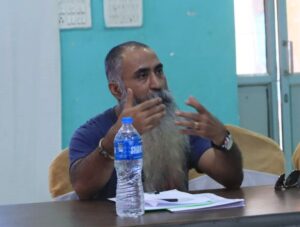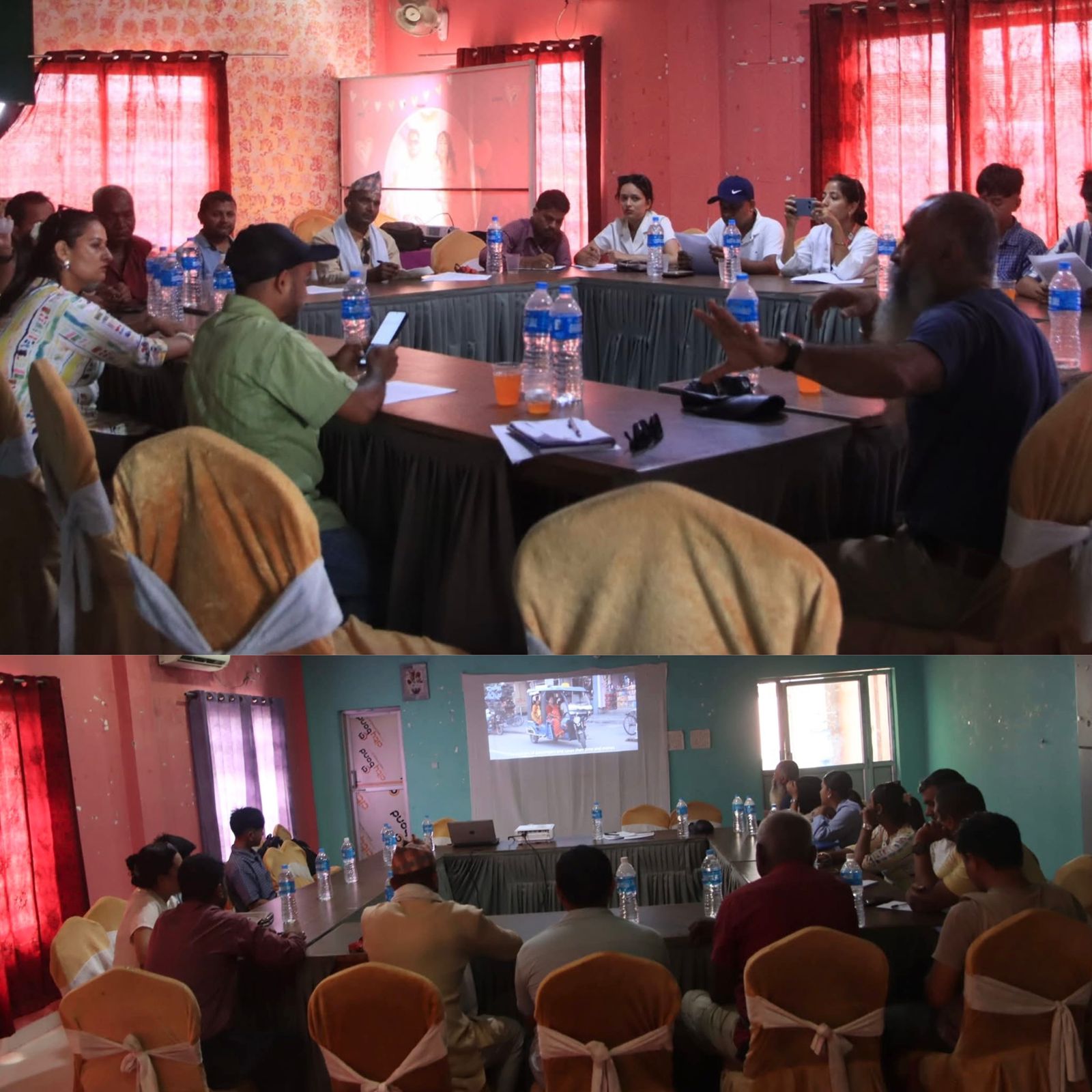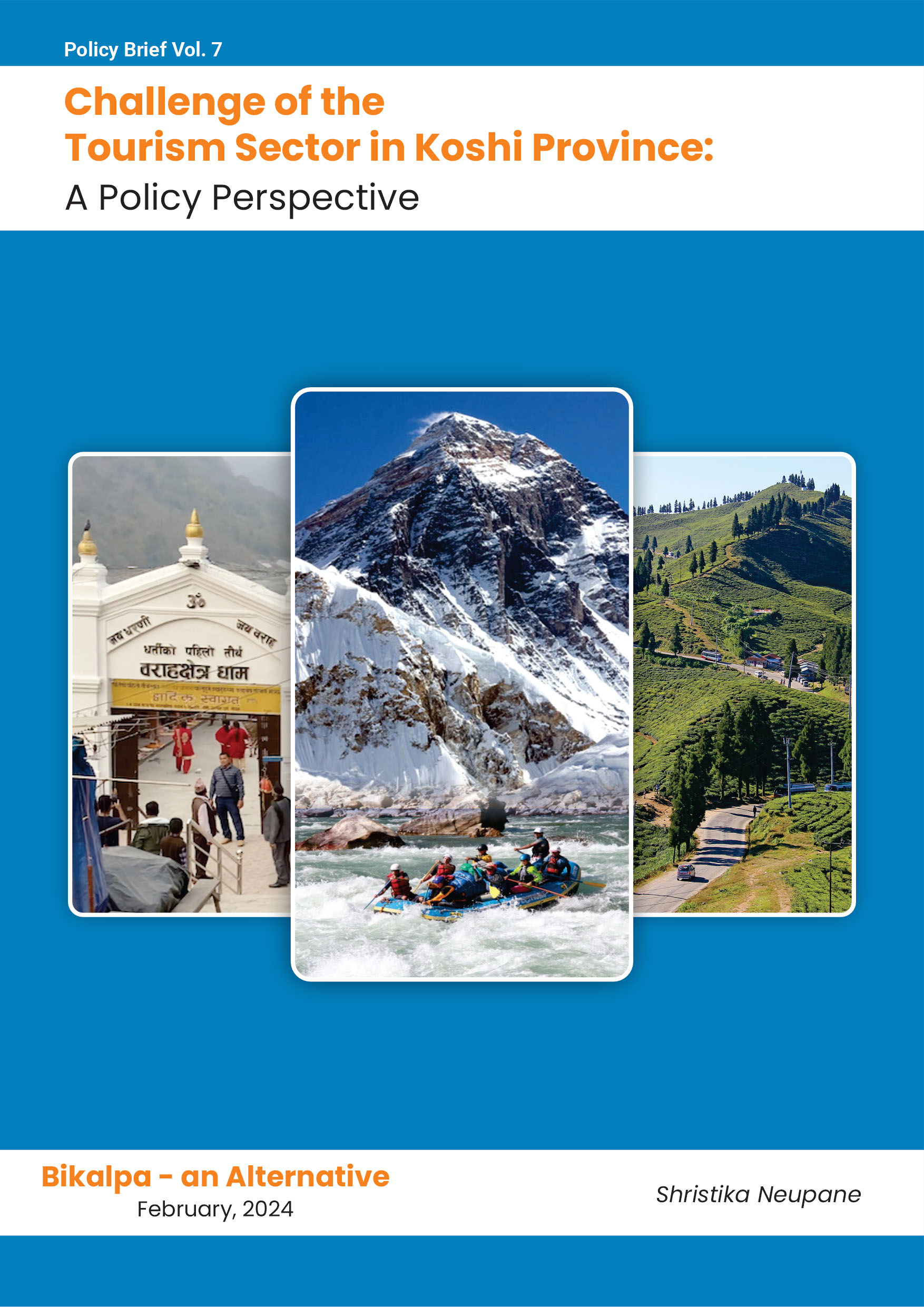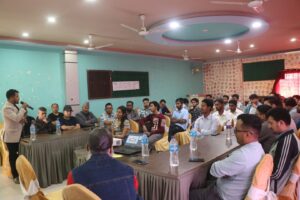On June 13, 2025, a press meet organized by Bikalpa-an alternative, brought to light the pressing issues surrounding the regulation and operation of e-rickshaws in the city. The event, attended by media personnel, stakeholders, and city rickshaw drivers, served as both a platform for open dialogue and a call to action.The session was facilitated by Mr.Basanta Adhikari, outlining the objectives of the meeting to confront the mounting challenges that threaten the sustainability and safety of this growing e-rickshaw.
Adhikari began by tracing the evolution of e-rickshaws from a novel green alternative to a widely relied-upon daily transport system that now directly and indirectly supports the livelihoods of thousands. “City rickshaws have democratized transport for both drivers and commuters,” he noted, “but our systems haven’t evolved fast enough to keep up with this change.

Among the critical concerns raised were:
● Absence of a Clear Registration Authority: The lack of a central or designated body to oversee the registration of city rickshaws has led to a regulatory vacuum, making it difficult to monitor and manage the growing fleet.
● Licensing Crisis: A disproportionately low number of e-rickshaw drivers possess a valid license. The current licensing system requires a written exam—a significant barrier for many drivers who are uneducated or semi-literate. Without licenses, these drivers are ineligible for insurance, exposing them and their families to devastating risks in the event of an accident.
● Traffic Congestion and Road Safety: With e-rickshaws increasing in number daily, they are now being viewed as contributors to road congestion and accident rates, particularly in urban cores already under infrastructure strain.
Two impactful video presentations punctuated the session. The first video educated attendees on the rise of city rickshaws, their socio-economic significance, and the harsh reality that many operate without licenses. It advocated for replacing the current written test with a verbal exam, a shift that could open the door to greater licensing inclusivity.
The second video offered a heartbreaking look into the personal toll of regulatory failure. It told the story of Durga Sangraula, a mother whose young son hanged himself because his father —a city rickshaw driver, was imprisoned for three years following a tragic accident that resulted in the death of an elderly pedestrian. With no license to his name, the legal consequences were severe. Meanwhile, Durga worked abroad, leaving the child without parental support and highlighting the human dimension of policy neglect.

Following the videos, an interactive Q&A session invited journalists to pose pressing questions. Discussions ranged from immediate regulatory reforms to long-term infrastructure strategies. Rickshaw drivers also stepped forward to share their experiences, frustrations, and hopes for reform.
The event concluded with Basanta Adhikari thanking all participants, emphasizing that the responsibility for addressing the city rickshaw dilemma is shared by policymakers, civil society, media, and the transport community alike.
“The solutions exist,” Adhikari said. “What we need now is the political will and public support to implement them.”
As the event wrapped up, it was clear that the press meet had not only illuminated the issues but also sparked a broader conversation about inclusion, safety, and sustainable urban transport. The press meeting will pave the way for meaningful reform in the days ahead.
Here’s the media coverage link:
http://nagariknews.nagariknetwork.com/social-affairs/1479167-1749830545.html











